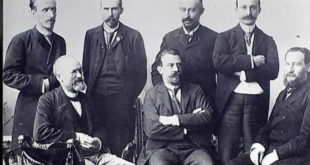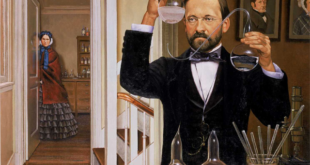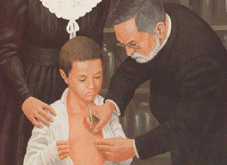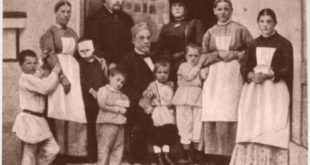Originally published in The Journal of the American Medical Association, Volume 57, Number 15, 1911, p. 1225
To the Editor: –All those who relish rich and lofty natures, great characters who have marked their impress on a whole generation, and left of their passage a trace that time shall not obliterate, will have read with interest and emotion your editorial in THE JOURNAL, Sept. 9, 1911, page 904. The very day your article was published was the anniversary of that on which Virchow was laid to rest nine years ago; and it was indeed a fitting tribute to him to commemorate on such a day the personality of this great man, and to take as the motto of his eulogy what was the characteristic of his personality: his generosity.
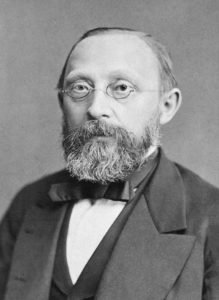
A great scientist, a great educator and above all a great citizen and patriot–Virchow was all that, and to a degree that is uncommon to see combined in a single man. An absolute faith in the progress and the destinies of humanity, to which he had devoted all the gifts of his rich nature, and an ardent and generous sympathy for anything that was noble and great were among the most eminent characteristics of Virchow. And so, when he was called on to take the defense of Pasteur, and to vindicate his memory before the German scientific world, he had no great effort to make: he had only to obey the commands of his lofty nature. As for Pasteur himself, there is a peculiarity concerning his attitude to Germany which has not been put in the proper light, and which, distorted as it has been by the passions of the time, is apt, if left unchallenged, to misrepresent him before posterity.
Your editorial seems to ascribe Pasteur’s unwillingness to accept the distinctions offered him by the German government to a natural soreness over the reverses of his country in the Franco-German war. This is not, however, the true reason of his attitude.
Men of the present generation could not adequately realize the stress of calamities and horrors that were visited on France during that unfortunate war. To recall them today would be to revive unnecessarily the bitterness and the animosities of a conflict on which, in the interest of peace and the comity between nations, it is preferable to let impartial history pass judgment. But while we admit that war is war, and that its excesses and violences must be condoned in a spirit of philosophic equanimity, if not of absolute submission, it is nevertheless true that the rigors and the bitterness evinced during the Franco-German conflict must have strained the fibers of patriotism to a point that left in the heart of a man like Pasteur an unconquerable soreness, to put it very mildly. As Virchow mentioned in his address, the unfortunate city of Strasburg, endeared particularly to Pasteur by family ties, sustained continuous bombardment from August 14 to September 28, which made of that old and magnificent city a pile of ruins, including its lofty cathedral. And to cap the climax, what must have been for a scientist and a patriot an unforgivable affront, is the fact that the German scientists hastened to return their French distinctions, and to sever their scientific connections with their erstwhile rivals, now become their vanquished enemies. Virchow alone indignantly refused to participate in such undignified proceedings. In recalling those unfortunate episodes, my purpose is merely to point out that what seemed to superficial or misinformed observers the vain exhibition of a pique or the bitterness of national vanity, was in reality the deep feeling of self-respect and of wounded patriotism. It would have been unworth the name of a true patriot to accept any distinctions from the German government, on whatever round or pretext they were proffered. And such, we confidently expect, will be the verdict of impartial history, to which we must always appeal in these controverted matters.
A. DELCOURT, M.D., SR. HOUMA, La.
 Pasteur Brewing Louis Pasteur – Science, Health, and Brewing
Pasteur Brewing Louis Pasteur – Science, Health, and Brewing 